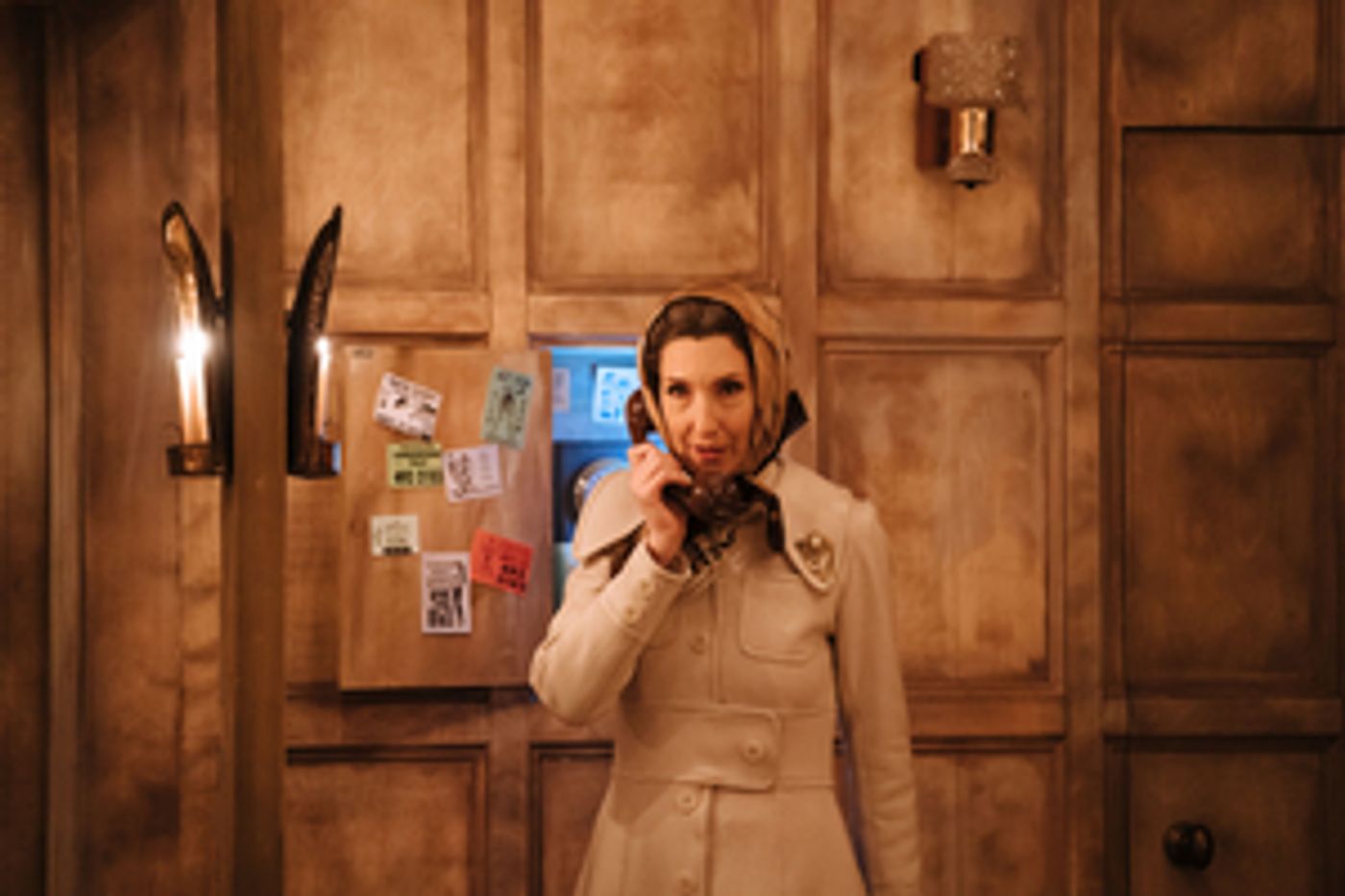Review: MEASURE FOR MEASURE, Sam Wanamaker Playhouse
Blanche McIntyre switches early modern Vienna for 1970s London in this intimate, candlelit production

![]() Life in the UK at the moment feels uncannily like we're going through a 'Worst of the 70s' playlist: periods of no economic growth, food shortages, an increase in the cost of living, and rumblings over a referendum on Europe. There was also an attempt to kickstart the conversation about equality between the sexes, with the formation of the Women's Liberation Movement. It's little wonder, then, that this version of Measure for Measure seems so familiar - hint: it's not just the perennially relevant themes of the play that hit home.
Life in the UK at the moment feels uncannily like we're going through a 'Worst of the 70s' playlist: periods of no economic growth, food shortages, an increase in the cost of living, and rumblings over a referendum on Europe. There was also an attempt to kickstart the conversation about equality between the sexes, with the formation of the Women's Liberation Movement. It's little wonder, then, that this version of Measure for Measure seems so familiar - hint: it's not just the perennially relevant themes of the play that hit home.
The Duke temporarily abdicates her power, leaving the officious Angelo in charge until she returns; he takes this opportunity to clamp down on the city's crime, certain that the Duke has been a bit lax of late. All of the brothels are ordered to close down, and the relatively reputable Claudio is arrested when his fiancée Juliet becomes pregnant. His friend Lucio brings Isabella, his sister and a novice nun, to the city to plead for his freedom - Angelo eventually backs down, agreeing to release Claudio if Isabella spends the night with him.
Thrown by this ethical dilemma, and shocked at her brother trying to persuade her to go through with it, Isabella turns to the mysterious Friar Lodowick (the Duke in disguise) who suggests a way around it - whilst also offering hope to the miserable Mariana, who was cast aside by Angelo when her dowry was lost. A simple bed trick. But just how honourable is Angelo?
Though Measure for Measure is technically classified as a comedy, the dark themes (including that of sexual coercion) often preclude it from being presented as such. This makes Blanche McIntyre's production a real breath of fresh air, in that the overwhelming focus is on the funny; the humour is all there in the text, so it doesn't need to be shoe-horned in - it's simply coaxed out by a shared intent and commitment to a degree of levity from the cast.
As such, it did lack some of the punch that Isabella's story usually engenders - but is that necessarily a bad thing? After the events of this year alone, it's actually a bit of a relief that it doesn't cut quite so deeply. It is possibly helped by the Duke being a woman (and yes, she can still go by that title - Queen Elizabeth II is the Duke of Lancaster, after all), as it loses some of the usual patriarchal overtones with her pulling the strings.
The most affecting part, for me, is the final showdown between Isabella and Angelo, where the man uses all the usual deflections to try and get out of being held to account - the woman is accused of being emotional and crazy, and so not believed at first.
The premise of the production is a good one in theory, with all the parallels I've previously mentioned, but it possibly could have been played up a little more. For example, I would have liked to have seen a call-back to the outages at the beginning, which force the use of candelight - perhaps a flickering and then blackout as the Duke and Isabella negotiate the famously unresolved ending, as it is it lacks a certain oomph in its current state.
James Cotterill's costume designs, however, really do evoke the decade in question - from the police uniforms to the oversized collars and flared suits.
The cast is relatively small, so there is a fair amount of doubling up going on (made possible by an array of suitably seventies wigs), as well as a host of excellent performances. Daniel Millar's turn as the constable Elbow is unforgettably hilarious, as is Ishia Bennison's as the drunken prisoner Barnadine.
Hattie Ladbury is brilliant at working the crowd, particularly as they come close to revealing the true identity of Friar Lodowick towards the end, with a Roger Moore-esque raised eyebrow and looks to the audience à la Fleabag. Ashley Zhangazha imbues Angelo with a certain kind of awkwardness that belies his authoritarian nature, allowing him to participate in some of the comic moments of the play and also providing a stark contrast when Angelo is at his most deadly.
Georgia Landers is a wonder as Isabella; you could be forgiven for thinking that a trainee nun would come across as timid or overly pious, but there is a different kind of spirit on show here. As the Duke herself recognises by the end of the play, there is more of the cabinet than the cloisters to Isabella - her intelligence and determination comes through in Landers' performance.
On the whole, this is a fascinating production of a potentially troublesome play; one that provokes laughter as much as thought. Whether you have seen Measure for Measure before, or it's your introduction to the play, it will probably take you by surprise - either way, it makes for highly recommended viewing.
Measure for Measure is at the Sam Wanamaker Playhouse until 15 January 2022
Picture credit: Helen Murray
Reader Reviews
Videos

